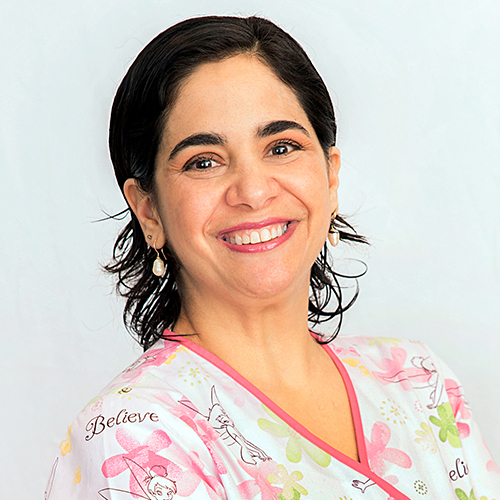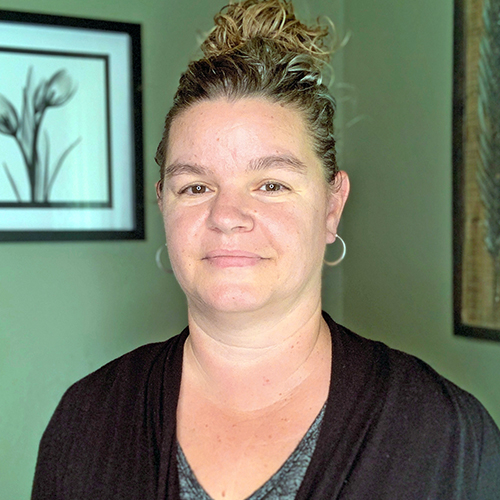GOLD Learning Tongue-Tie Online Symposium 2022 - Day 1 Fundamental Skills
Welcome to the Day 1 Lecture Pack of the GOLD Learning Tongue-Tie Online Symposium 2022 for topics on Fundamental Skills! 5 expert speakers present a comprehensive overview of the fundamentals of providing care to infants and young children with oral restrictions and their families. Learn more about how to assess for tongue-tie using the Lingual Frenulum Assessment Protocol for Infants, the importance of anticipatory guidance and supportive aftercare, the impact of tethered oral tissues on the fascial system, retrognathia and hypotonia as differential diagnoses and the mental health implications and effective counselling and screening for mood disorders.
These presentations will leave you feeling more confident and armed with clinical skills that you can put into practice right away to help the families in your care.
Learn more about the Day 2 Lecture Pack of the Tongue-Tie Online Symposium 2022 - Advancing Our Understanding. Dive deeper into the topic of tongue-tie with a look at the impact of COVID-19 and the implications for tongue-tie division, the long term implications of tongue-tie, new research on oral restrictions and reflux, compensatory vs novel movements, and clinical case studies of situations where oral restrictions were initially missed, the consequences and results of subsequent treatment.


Dr. Ankita Shah is a leading Airway Focused Dentist. She is also the President of the India Airway Co-LAB Chapter initiated by AAPMD, New York & The Breathe Institute, Los Angeles. Dr. Ankita is also the only Indian Ambassador to be trained by the renowned ENT & Sleep Surgeon Dr. Soroush Zaghi. The Tongue Tie & Sleep Institute headed by her focuses on providing a comprehensive, holistic and multidisciplinary approach to all problems Tongue Tie, Airway & TMJ. She wishes to change the way in which medicine has approached problems in the past and provide patients with a redefined experience to dentistry.
1: Explain the foundations of anatomy and fascia that are necessary when diagnosing TOTs
2: Describe how fascia impacts posture, facial development and tongue
structure, function & mobility through different age groups
3: Explain the role of a fascial tongue tie release
What are tethered oral tissues and what is the role of fascia? Fascia is a thin casing of connective tissue that surrounds and holds every organ, blood vessel, bone, nerve fiber and muscle in place. How is the fascial system connected to TOTS? The condition of tongue-tie and lip-tie exists on a continuum with variable visibility and symptoms differently across the body through different age groups. Some restrictions, mainly anterior or “classic” tongue tie, are highly visible and easier to detect. However, “posterior” or submucosal tongue-ties are often more challenging to diagnose. Through this session, we will explore a detailed dissection of what is fascia and how the concept of tongue ties has evolved and changed with the role of fascia and its impacts with TOTS. It takes a village of specialists to treat this challenging problem. We will learn how we can help prevent a vicious circle of problems if treated early with a holistic integrative approach.


Dr. Camila Palma obtained her Doctor of Dental Surgery (DDS) from Universidad Tecnológica de México (UNITEC), Mexico City. She also holds a Master of Science in Dentistry in Pediatric Dentistry (MSc) from the University of Barcelona, Spain and was certified as an International Board Certified Lactation Consultant (IBCLC) in 2019. Dr. Palma is Associate Professor in the Pediatric Dentistry Postgraduate Department, Peruvian University Cayetano Heredia, and Vice-president of the Peruvian Society of Pediatric Dentistry (2021-2023). She also has her own Pediatric Dentistry dental practice in Lima, Peru (Chis Dental). Dr. Palma is the author of several scientific articles, especially in caries prevention and infant oral healthcare. She is also a lecturer in Latin American and European Dental and Lactation Conferences and content creator on children´s oral health for parents through her YouTube channel (Dra. Camila Palma), instagram and Facebook accounts (@chisdental).
1. Describe the difference between retrognathia and a normal mandible.
2. Explain the impact of retrognathia and hypotonia on breastfeeding.
3. Explain why frenotomy is contraindicated in patients with severe retrognathia.
Ankyloglossia is an embryologic variation of the lingual frenulum, which causes a significant restriction in the mobility of the tongue. As such, an altered lingual function is always an essential consideration when faced with breastfeeding challenges. On some occasions however, other anatomic or functional alterations in the babies’ orofacial region can cause breastfeeding problems, similar to those seen in tongue-tie babies. They can be the root of latch difficulties, nipple trauma and/or suction and deglutition issues. In these cases, frenotomy does not solve those problems and therefore, the misdiagnosis and posterior surgical treatment can frustrate parents. From a pediatric dentist perspective, retrognathia (recessed chin) and hypotonia are two common differential diagnosis of tongue tie, which can affect a babies’ suction at the breast. The aim of this talk is to present normal and abnormal orofacial structures so as to differentiate ankyloglossia from two problems that can be part of a “faux tie”, in order to aid breastfeeding consultants, and broaden their perspective on breastfeeding difficulties.


Christine Staricka is a Registered, International Board-Certified Lactation Consultant and trained childbirth educator. As the host of The Lactation Training Lab Podcast, her current role focuses on training and coaching current and aspiring lactation care providers. Christine created and developed The First 100 Hours© concept, an early lactation framework designed to support lactation care providers with the knowledge and mindset they need to help families optimize early lactation. Christine worked as a hospital-based IBCLC for 10 years and has over 20 years experience providing clinical lactation care and support. She provides clinical lactation care to families at Baby Café Bakersfield and serves as its Director. Christine recently completed 6 years of service on the Board of the United States Lactation Consultant Association (USLCA.) She holds a Bachelor's Degree from the University of Phoenix. She has been married for 27 years, lives in California, and is the proud mother of 3 amazing daughters.
Topic: Tongue-Tied and Troubled: A Breastfeeding Journey at Risk - [View Abstract]
Topic: Your Responsibility to the WHO Code: Evaluating Real-World Scenarios for Compliance - [View Abstract]
1. Describe 3 characteristics of a lactation scenario involving tongue-tie which can trigger stress or strong emotions in the mother or lactating parent
2. Describe 3 behaviors which can be indicators of a need for screening for postpartum mood disorders
3. List 4 areas for questioning and counseling that lactation care providers should use to address common stressors in a lactation scenario involving tongue-tie
A suspected or diagnosed tongue-tie can throw a breastfeeding journey into immediate peril, with concerns over the baby's well-being most often discussed and debated. However, without an appropriate and intentional strategy for supporting the mother, the breastfeeding journey risks meeting an untimely, unplanned, and/or unsatisfactory end. The mental and emotional toll such a complex lactation situation can take on parents is wide-ranging in its effects, and it is critical to provide personalized and comprehensive counseling to restore a sense of empowerment and control to the mother as she makes continual decisions on how and whether to proceed with lactation and breastfeeding. Additionally, it is vital that indications of postpartum mood disorders are recognized and addressed as early as they appear. Lactation care providers can benefit from a clear framework for their fundamental responsibility to safeguard both the mother and child in a breastfeeding dyad. In this presentation we will explore ideas and themes that can guide the lactation care provider to ask the right questions at the right times in the specific context of tongue-tie so that they can offer effective counseling and care.


Dr. Agarwal went to medical school at All India Institute of Medical Sciences, AIIMS, in New Delhi, which is the premiere institution for medical training in India. After which, he came to the United States for his Pediatric Residency at the University of Texas Medical Branch at Galveston. Subsequently went on to join the Pediatric Nephrology fellowship at University of Florida at Gainesville. Under the program, he also conducted bench research at Ohio State University. Dr. Agarwal worked on the Eastern Shore of Virginia for eight years in general pediatrics before moving to Arizona to establish Agave Pediatrics in 2005. Over the years Dr. Agarwal has developed his own style of practicing pediatrics, which is strongly supportive of natural ways of taking care of children and emphasis on breastfeeding. During his practice, he realized that one of the biggest impairments in breastfeeding was the presence of labial and lingual ties. Having performed some procedures during medical school, he re-educated himself about the procedure and started performing them in 2007. In the last 15 years, Dr. Agarwal has performed more than 18000 frenotomies. Now, along with a busy clinical practice, he has made it his goal to spread the awareness about the issues related to labial and lingual ties to pediatricians, lactation consultants, doulas, midwives -everybody who helps mothers with the process of breastfeeding and in taking care of children with feeding and speech difficulties.
1: Explain the details of pre-frenectomy anticipatory guidance.
2: Describe post frenectomy management of pain, and exercises that may decrease the incidence of reattachment
3: Describe the nuances of care for the dyad, and the importance of individualizing care for the best possible results post frenectomy."
Frenectomy has become an increasingly more common procedure since the resurgence of interest in breastfeeding. Patient selection and anticipatory guidance provided to the family are key to success in reaching their goals. An honest discussion about the indications for doing the procedure and providing them with resources preemptively help in establishing trust and the future success of the procedure. After the procedure the care of the baby and the site are very intimidating to families and support at that time is vital to the success of the procedure. The post procedure experience can vary widely and to an extent depends on the family’s readiness. It is very important that post procedure be discussed before the procedure and support given after the procedure. Ultimately, the pre and post procedure interventions make the experience wholesome and conducive to successful breastfeeding.


SALP expert in Orofacial Myology. PhD in Science USP - University of São Paulo. Chief of lingual frenulum evaluation sector at Santa Therezinha Hospital/ Brazil
1. Explain the importance of tongue movements for breastfeeding.
2. Describe the impact of limited tongue movements caused by ankyloglossia on sucking, swallowing, chewing, breathing and speaking.
3. Explain the step-by-step assessment of the lingual frenulum through the Lingual Frenulum Assessment Protocol for Infants.
Tongue movements are essential for milk extraction during breastfeeding. It is therefore very important that professionals are able to reliably identify anatomical variations in the lingual frenulum that may impact infant feeding. Learn more about how to use the Lingual Frenulum Assessment Protocol for Infants. This tool allows assessment of changes in the lingual frenulum and limitation of tongue movements, which can compromise the functions of sucking, swallowing, chewing, breathing and speaking.
Accreditation
CERPs - Continuing Education Recognition Points
Applicable to IBCLC Lactation Consultants, Certified Lactation Consultants (CLCs), CBEs, CLE, Doulas & Birth Educators. GOLD Conferences has been designated as a Long Term Provider of CERPs by the IBLCE--Approval #CLT114-07.This program is approved for 5 CERPs (4 L-CERPs, 1 R-CERP).
ASHA - Professional Development Hours for Speech-Language Pathologists
According to ASHA, this activity qualifies for 5 PDHs. Activities are accepted as PDHs if they contribute to your professional development and will lead to acquiring and enhancing skills and knowledge required for independent audiology and SLP practice.
Please review ASHA's Acceptable Activities for Professional Development for more information.
Dietetic CPEUs - Continuing Professional Education Units:
Applicable to Dieticians & Nutritionists, this program is approved for 5 Dietetic CPEUs by the Commission on Dietetic Registration - the credentialing agency for the Academy of Nutrition and Dietetics.
If you have already participated in this program, you are not eligible to receive additional credits for viewing it again. Please send us an email to [email protected] if you have any questions.
Tags / Categories
(IBCLC) Clinical Skills, (IBCLC) Education and Communication, (IBCLC) Infant, (IBCLC) Pathology, Tongue-tie, Lip Tie & Structure
How much time do I have to view the presentations?
- The viewing time will be specified for each product. When you purchase multiple items in your cart, the viewing time becomes CUMULATIVE. Ex. Lecture 1= 2 weeks and Lecture Pack 2 = 4 Weeks, you will have a total of 6 weeks viewing time for ALL the presentations made in that purchase.
- Time for viewing the talks begins once you purchase the product. For Live Webinars & Symposiums, the viewing period begins from when the live event takes place. Presentations can be accessed 24/7 and can be viewed as many times as you like during the viewing period.
What are bundled lectures?
- Presentations may be available individually or via a bundled package. Bundled lectures are a set of lectures that have been put together based on a specific category or topic. Some lectures will be available in both individual and lecture form, whereas others will be available only via a bundled lecture pack.
Will there be Handouts?
- YES! Each lecture comes with a PDF handout provided by the Speaker.
Some lectures include a Q&A, what does that mean?
- During our online conferences, presentations that occur live are also followed by a short 15 minute Question & Answer Session. The Speaker addresses questions that were posted by Delegates during the presentation. We include the recording of these Q&A Sessions as a bonus for you.
How can I receive a Certificate?
- If this presentation offers a certificate, once you are done viewing the lecture or the lectures within a bundle, submit your attendance record in order to be able to download your certificate. You'll be able to see which credits are offered for the lecture by hovering over the "Credits Available" link within the "Speakers & Topics" tab.
Professionals that selected this package also viewed

|
|

|










